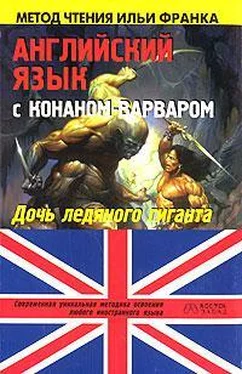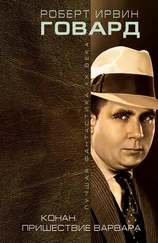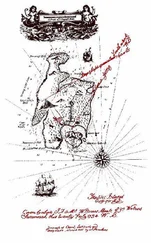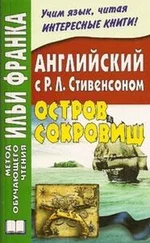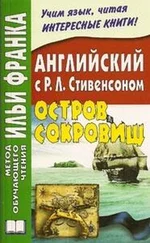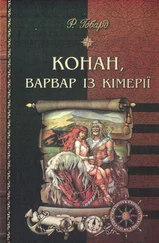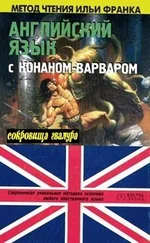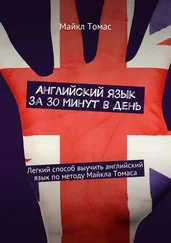‘He won’t open his left hand (он не хочет раскрыть = не раскрывает /его/ левую кисть),’ growled another (проворчал другой). ‘He’s clutching something — (он является сжимающим = сжимает что-то)’
limbs [lɪmz], hasten [heɪsn], wield [wi: ld]
‘He’s coming to, Horsa,’ said a voice. ‘Hasten — we must rub the frost out of his limbs, if he’s ever to wield sword again.’
‘He won’t open his left hand,’ growled another. ‘He’s clutching something — ’
Conan opened his eyes and stared into the bearded faces that bent over him (Конан открыл /его/ глаза и уставился в бородатые лица, которые склонились над ним; to bend — склоняться, наклоняться ). He was surrounded by tall, golden-haired warriors in mail and furs (он был окружен высокими златовласыми воинами в доспехах и мехах). ‘Conan!’ said one (Конан! — сказал один). ‘You live! (ты живешь = ты жив )’
‘By Crom, Niord,’ gasped the Cimmerian (Кромом = клянусь Кромом , Ниорд, — открыл рот = удивился киммериец). ‘Am I alive, or are we all dead and in Valhalla? (/являюсь/ я жив(ым), или /являемся/ мы все мертвые(-ми) и в Вальгалле)’
stare [stɛə], warrior [wɔrɪə], fur [fə:]
Conan opened his eyes and stared into the bearded faces that bent over him. He was surrounded by tall, golden-haired warriors in mail and furs. ‘Conan!’ said one. ‘You live!’
‘By Crom, Niord,’ gasped the Cimmerian. ‘Am I alive, or are we all dead and in Valhalla?’
‘We live,’ grunted the As (мы живы, — проворчал ас), [5] В некоторых вариантах жителей Асгарда называют асирами. Тем более что бородач, скорее всего, не АС Пушкин и не ас Покрышкин, как думает Аз.
busy over Conan’s half-frozen feet (занятый над полуобмороженными ступнями Конана). ‘We had to fight our way through an ambush, or we had come up with you before the battle was joined (нам пришлось пробиваться с боем через засаду: «мы имели сражаться наш путь через засаду», или / иначе мы присоединились к вам: «подошли с вами», прежде чем битва была начата; the battle was joined — битва началась ). The corpses were scarce cold when we came upon the field (трупы были едва холодными = еще не остыли , когда мы пришли на поле). We did not find you among the dead, so we followed your spoor (мы не нашли тебя среди мертвых, поэтому мы последовали твоему следу = пошли по твоему следу ). In Ymir’s name, Conan, why did you wander off into the wastes of the North (во имя Имира, Конан, почему ты побрел в пустоши севера)? We have followed your tracks in the snow for hours (мы шли по твоим следам в снегу уже (несколько) часов: «для часов»). Had a blizzard come up and hidden them, we had never found you, by Ymir (вьюга случилась = если бы началась вьюга и скрыла их, мы (бы) никогда (не) нашли тебя, клянусь Имиром!; had come up, had hidden, had found — предпрошедшее время, обозначает действие, которое произошло до начала другого действия в прошлом, здесь употребляется в условном значении — если бы )!
found [faund], waste [weɪst], North [nɔ: Ɵ]
‘We live,’ grunted the As. busy over Conan’s half-frozen feet. ‘We had to fight our way through an ambush, or we had come up with you before the battle
was joined. The corpses were scarce cold when we came upon the field. We did not find you among the dead, so we followed your spoor. In Ymir’s name, Conan, why did you wander off into the wastes of the North? We have followed your tracks in the snow for hours. Had a blizzard come up and hidden them, we had never found you, by Ymir!’
‘Swear not so often by Ymir (клянись не так часто = не клянись так часто Имиром),’ muttered a warrior uneasily, glancing at the distant mountains (пробормотал /один/ воин тревожно, поглядывая на далекие горы). ‘This is his land, and legends say the god bides among yonder peaks (это /есть/ его земля, а легенды говорят, (что) этот бог живет среди вон тех вершин).’
swear [swɛə], often [ɔfn], peak [pi: k]
‘Swear not so often by Ymir,’ muttered a warrior uneasily, glancing at the distant mountains. ‘This is his land, and legends say the god bides among yonder peaks.’
‘I saw a woman,’ Conan answered hazily (я видел женщину, — Конан ответил невнятно). ‘We met Bragi’s men in the plains (мы встретили людей Браги на равнинах). I know not how long we fought (я не знаю, как долго мы бились). I alone lived (я один выжил). I was dizzy and faint (я был испытывающим головокружение и ослабевшим = у меня кружилась голова, и я был слаб ). The land lay like a dream before me; only now do all things seem natural and familiar (земля лежала как сон передо мной; лишь теперь /делают/ все вещи кажутся естественными и знакомыми). The woman came and taunted me (женщина пришла и дразнила меня). She was beautiful as a frozen flame from Hell (она была прекрасна, как замерзшее пламя /из/ ада). A strange madness fell upon me when I looked at her, so I forgot all else in the world (странное безумие напало на меня, когда я посмотрел на нее, поэтому я забыл все остальное = обо всем остальном в мире / на свете; to forget — забыть ). I followed her (я последовал (за) ней). Did you not find her tracks (вы не нашли ее следов)? Or the giants in icy mail I slew (или гигантов в ледяных доспехах, (которых) я убил; to slay — убивать, уничтожать, лишать жизни )?’
before [bɪˈfɔ: ], now [nau], familiar [fəˈmɪljə]
‘I saw a woman,’ Conan answered hazily. ‘We met Bragi’s men in the plains. I know not how long we fought. I alone lived. I was dizzy and faint. The land lay like a dream before me; only now do all things seem natural and familiar. The woman came and taunted me. She was beautiful as a frozen flame from Hell. A strange madness fell upon me when I looked at her, so I forgot all else in the world. I followed her. Did you not find her tracks? Or the giants in icy mail I slew?’
Niord shook his bead (Ниорд покачал /своей/ головой). ‘We found only your tracks in the snow, Conan (мы нашли только твои следы в снегу, Конан; to find — находить ).’
Читать дальше
